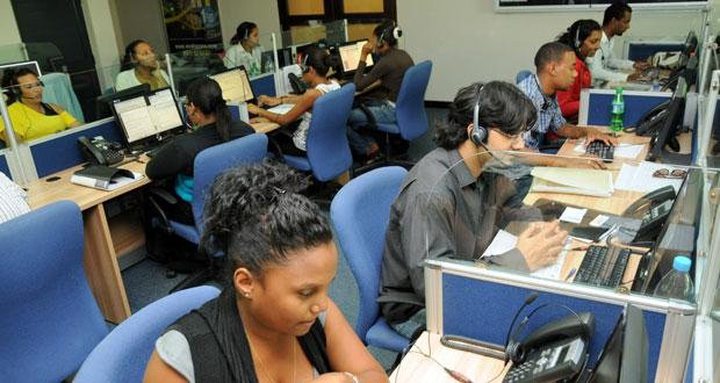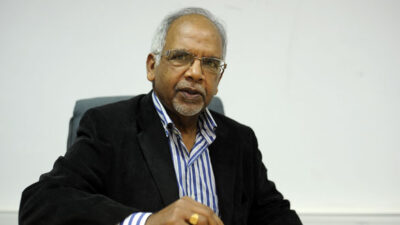Mauritius, a dynamic island nation in the Indian Ocean, is known for its stable economy, strategic location, and bilingual workforce. In 2023, the Business Process Outsourcing (BPO) sector contributed 5.6% to Mauritius’ GDP, ranking it 32nd globally as an outsourcing destination (Kearney Global Services Location Index 2023). To accelerate economic growth, Mauritius can expand its BPO industry by drawing inspiration from the Philippines, a global BPO leader generating $32.5 billion in revenue and employing 1.7 million people in 2023. By adopting strategies in workforce development, government support, technology adoption, and market diversification, Mauritius can scale its BPO sector while leveraging its unique strengths.
The Philippines’ BPO Success: A Model for Mauritius
The Philippines has become a BPO powerhouse, contributing 7–8% to its GDP with a 10.3% annual growth rate. Its success stems from a large English-speaking workforce, competitive labor costs, strong government incentives, and cultural alignment with Western markets. Services range from call centers to high-value knowledge process outsourcing (KPO), such as healthcare and IT services. Mauritius, while growing, focuses on customer support and financial services with a smaller workforce. By studying the Philippines’ approach, Mauritius can unlock new growth opportunities.
Key Strategies for Mauritius
- Scaling Workforce Training
Philippines’ Approach: The Philippines produces 1.6 million graduates annually, with a 96% literacy rate and strong English proficiency. Government and industry align education with BPO needs, offering training in customer service, IT, and technologies like AI. Hybrid work models have expanded talent pools to rural areas, with 29% of BPO workers based in provinces in 2022.
Mauritius’ Strategy: Mauritius’ bilingual (English and French) workforce is ideal for serving European and African markets, but its smaller population (1.3 million) limits scale. Mauritius can:- Collaborate with universities to create BPO-focused programs in digital skills, such as data analytics and cybersecurity.
- Expand vocational training in rural areas to support remote work, tapping into untapped talent.
- Promote STEM education to prepare workers for KPO services like financial analysis.
- Enhancing Government Support
Philippines’ Approach: The Philippine Economic Zone Authority (PEZA) offers tax holidays and streamlined business processes, while investments in internet and power infrastructure ensure reliability. The IT and Business Process Association of the Philippines (IBPAP) drives industry growth, targeting $59 billion in revenue by 2028.
Mauritius’ Strategy: Mauritius provides tax incentives and a GDPR-aligned Data Protection Act 2017, but can go further by:- Offering additional tax breaks for firms investing in rural areas or emerging tech.
- Upgrading broadband connectivity in secondary cities to support remote BPO operations.
- Creating a BPO industry association to attract investment and promote Mauritius globally.
- Adopting Advanced Technologies
Philippines’ Approach: In 2023, 70% of Philippine BPO firms used robotic process automation (RPA) and AI, enhancing efficiency and enabling high-value services like healthcare outsourcing. This has reduced costs and created demand for skilled roles.
Mauritius’ Strategy: With a solid IT infrastructure, Mauritius can:- Incentivize RPA and AI adoption to automate routine tasks and lower costs.
- Develop tech hubs to foster innovation between BPO firms and startups.
- Market its GDPR compliance to attract clients prioritizing data security.
- Diversifying Services and Markets
Philippines’ Approach: The Philippines serves diverse sectors, including healthcare, e-commerce, and KPO, with 39.2% of 2023 demand for customer service and 30% for design and marketing. Cultural ties with the U.S. and Australia drive client growth.
Mauritius’ Strategy: Mauritius primarily serves financial and customer support for Europe and Africa. It can:- Target healthcare and legal outsourcing, leveraging bilingual skills.
- Expand into African and Middle Eastern markets, using its strategic location.
- Develop niche expertise in Islamic finance or sustainable services.
- Promoting Rural Expansion
Philippines’ Approach: “Next Wave Cities” like Pampanga host 29% of BPO jobs, supported by infrastructure and training investments, reducing urban congestion.
Mauritius’ Strategy: Mauritius’ BPO is concentrated in Port Louis and Ebene. It can:- Develop BPO hubs in cities like Rose-Hill, offering incentives for firms.
- Improve rural internet and office infrastructure.
- Promote BPO careers in rural areas to boost local economies.
Mauritius’ Unique Advantages
Mauritius has strengths that complement these strategies:
- Bilingual Workforce: English and French proficiency serves diverse markets.
- Strategic Location: Proximity to Africa, Asia, and the Middle East supports time-zone flexibility.
- Stability: Political and economic stability attracts investors.
- Data Security: GDPR compliance appeals to security-conscious clients.
Challenges and Solutions
- Small Population: Focus on high-value KPO to maximize revenue per worker.
- Competition: Differentiate with bilingual services and niche expertise.
- Infrastructure: Use public-private partnerships to enhance digital connectivity.
Conclusion
Mauritius can significantly boost its economic growth by expanding its BPO sector, drawing on the Philippines’ proven strategies. By investing in workforce training, government incentives, technology, market diversification, and rural expansion, Mauritius can scale its BPO industry while leveraging its bilingual workforce and strategic location. With coordinated efforts, Mauritius can emerge as a leading BPO hub, driving jobs, investment, and sustainable growth.
References
- Kearney Global Services Location Index 2023
- IT and Business Process Association of the Philippines (IBPAP)
- KDCI Outsourcing Report 2023
- Magellan Solutions BPO Statistics 2024





